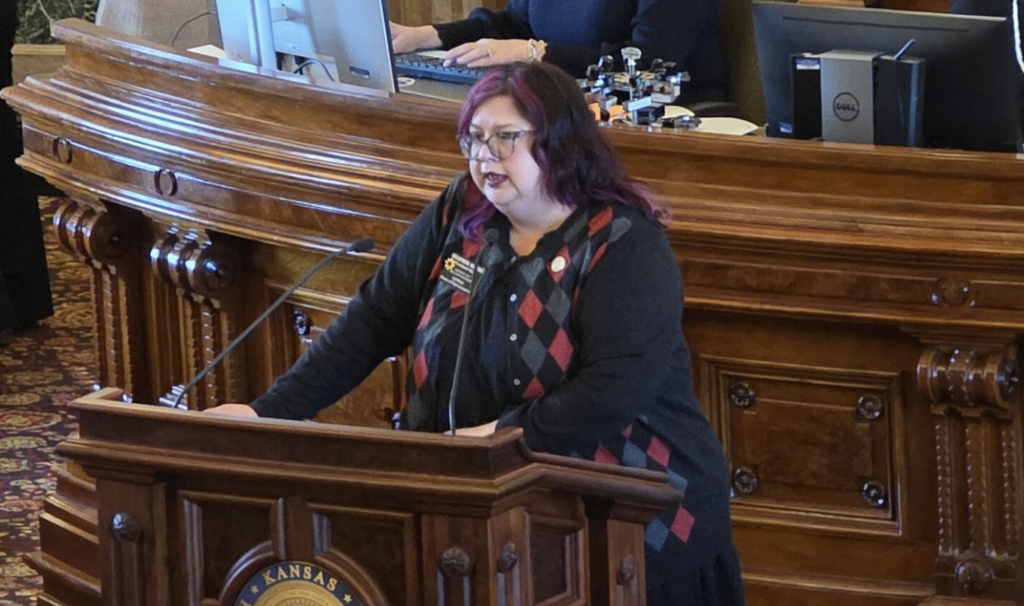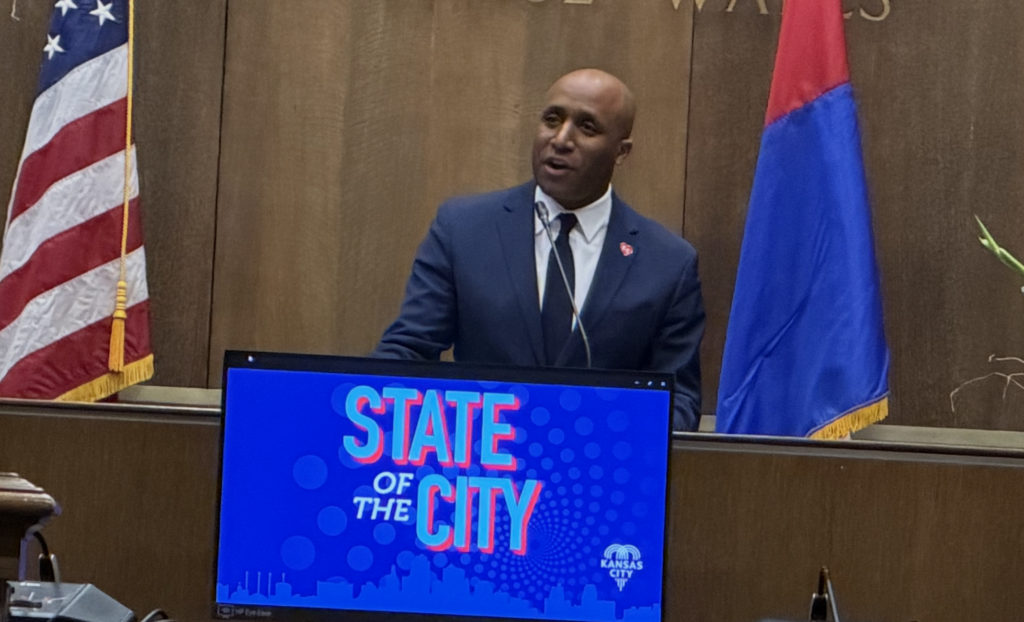Major Kansas City corporations are failing to tackle climate action plans, according to new report
Bauer and his team at Spendwell have configured their report based on commitments, or rather lack of commitments, made by some of the metro’s largest corporations, which is publicly available.
Kansas Citians may be wondering when driveways will be covered in white felt and they will have to bust out shovels. That answer is unknown, but it is clear that normal weather patterns have shifted over the past few decades and it is not looking like the city will get any snow before kissing 2023 goodbye.
This December, Kansas City has seen a high of 66 degrees, not uncommon for the Midwest town, but the summers and shifts in precipitation are where climate change is currently taking its toll. This previous summer, on Aug. 21, Kansas City saw its hottest day on record at 118.9 degrees in terms of heat index.
The root cause of these movements in the city’s weather patterns can be attributed to climate change: Something that is catastrophically crucial for individuals to be aware of for the sake of the planet’s future.
While some may be educated on the topic, they still fail to take action.
Large corporations who consider Kansas City their home base, are some of the biggest contributors to the issue of climate change, yet they seem to not bat an eye.
T-Mobile, Hallmark Cards, Dairy Farmers of America, Association Wholesale Grocers, Seaboard, Cerner, Evergy, JE Dunn Construction, Black & Veatch, and AMC are the ten largest corporations with headquarters in the city.
Spendwell, a corporate accountability and investigative reporting media company, released reports regarding major metro corporations’ climate action progress, with Kansas City being on the list. According to their report, all but T-Mobile, Hallmark, and Dairy Farmers of America have failed to take any action regarding climate change as of right now.
The company bases the progress on two metrics: RE100 and EP100 programs and Science Based Targets initiative (SBTi). RE100 and EP100 focus on renewable energy consumption and efficiency, while SBTi focuses on renewable energy, near-term, and net-zero commitments and targets and is supported by CDP, the United Nations Global Compact, World Resources Institute, and the World Wide Fund for Nature.
“Science Based Targets is essentially considered the gold standard for corporate accountability around climate in the world,” Lincoln Bauer, founder of Spendwell says. “They do targets and commitments on several things and then we’re ranking how companies are performing based on those commitments and targets.”
Bauer and his team at Spendwell have configured their report based on commitments, or rather lack of commitments, made by some of the metro’s largest corporations, which is publicly available.
Some of the data shows that T-Mobile has committed to set Science Based Targets, set near-term Science Based Targets, committed to 100% renewable electricity through RE100, and approved net-zero Science Based Targets with a target year of 2040. Despite approving net-zero Science Based Targets, Hallmark has taken the same action as T-Mobile. Dairy Farmers of America has merely committed to Science Based Targets and set near-term Science Based Targets.
All other seven corporations have yet to follow suit with any climate action commitments, according to the report.
“The 100 largest corporations in the world are responsible for over 70% of all greenhouse gas emissions,” he says.
Bauer encourages not only consumers to make ethical judgments about purchasing from these companies, but employees under the wings of these businesses to stand up as well.
“If you’re with AT&T, you can switch to T-Mobile, because I’m almost certain that T-Mobile is ahead of AT&T when it comes to these climate commitments and targets, for instance,” Bauer says.
“Employees at these companies are oftentimes the strongest voices for change within the organization. It doesn’t take anything to make a commitment to Science Based Targets, other than a letter, and then you’ve got two years to figure out your target.”
Many of these corporations declined interviews, did not respond, or sent over climate change reports that can be publicly accessed. JE Dunn was the only company to send a statement through email.
“We are continuing to explore how we can best apply the sustainable building practices we are currently implementing on our projects across our company,” JE Dunn Kansas City Office Lead Jeff Blaesing says. JE Dunn is evaluating how these best practices can be applied as achievable environmental goals that bring value to our clients, our project teams, and the communities where we live and work.”
“All these companies are going to have a PR sort of game around climate at this point,” Bauer says.
White Christmases continue to look bleak as our country, and the world as a whole, continue to grapple with climate change.





